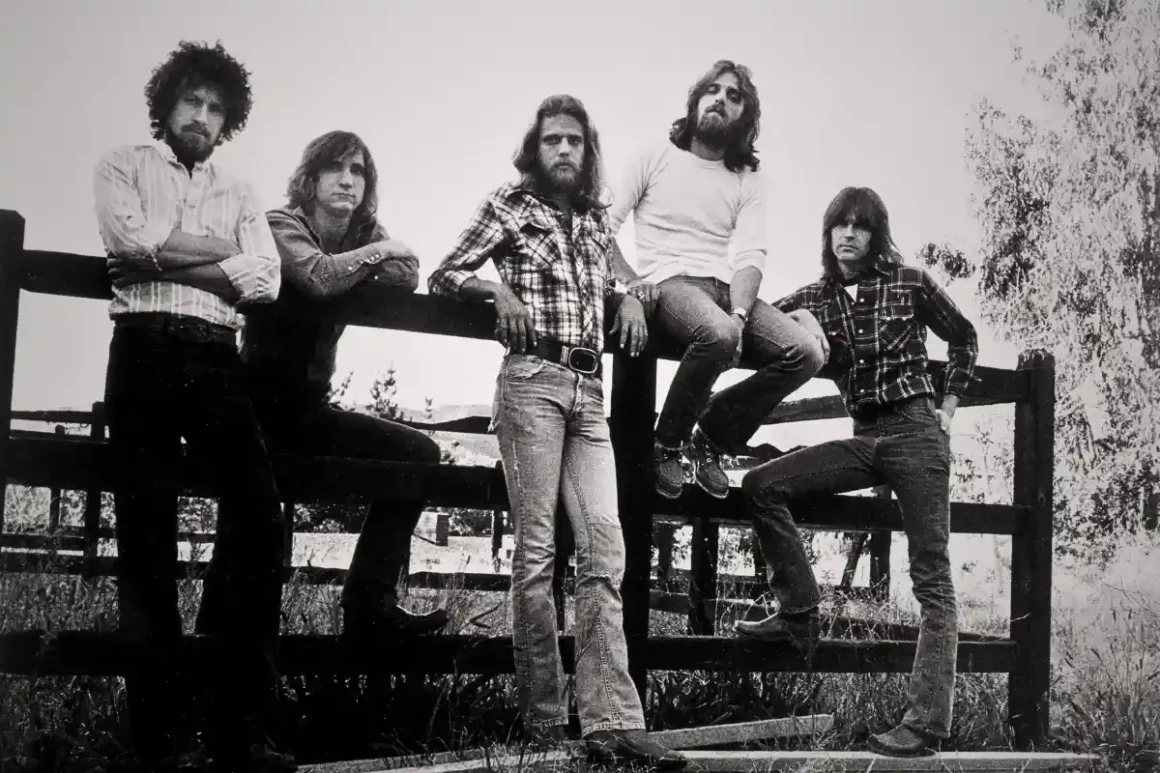Eagles developed a successful formula of soft rock with a country influence during the 1970s. By the middle of the 1970s, they had become one of the most popular and successful acts in the world thanks to hits like “Take It Easy” and “One of These Nights.” Their carefree hippie-hangover sound enthralled the other half of a generation enthralled with punk rock, especially Lindsey Buckingham and Stevie Nicks, who were inspired to transform Fleetwood Mac’s sound after Peter Green left.
Critics largely attributed the Eagles’ early success to the classic trio of songwriters Don Henley, Glenn Frey, and Bernie Leadon. This gifted group put on a lighthearted front in their music. However, the Eagles were serious about their craft behind the scenes. It caused many dramatic conflicts over the years as well as comings and goings.
Leadon made the decision to depart the band in 1975, ostensibly to avoid the rising stardom. This was despite the group’s historic success with One of These Nights. Some say Leadon left because he didn’t like the band’s steady transition from radio-friendly pop rock to purer country music.
Leadon explained that a number of circumstances came together to cause his departure in a 2013 Rolling Stone interview. “That’s an oversimplification,” he shot back when someone questioned his unadulterated country-rock tastes. It suggests that I was only interested in country rock and didn’t care for blues or rock music. Simply put, that is untrue. I played more than just the Fender Telecaster. I loved rock ‘n’ roll, and I played a Gibson Les Paul. It’s clear from the early records.
When the Eagles signed Don Felder in 1974, they were ready for Leadon’s departure. The Eagles further strengthened this when they brought in Joe Walsh, a former James Gang frontman, as a direct replacement in 1975.
The majority of fans acknowledge Frey and Don Henley as the Eagles’ co-leaders and primary creative forces. Despite writing the majority of the band’s songs together as longtime co-founders, power struggles were commonplace among them due to the abundance of gifted singers and songwriters in the group.
The greatest divide in Eagles history developed between Felder and Frey. Anger between Felder and Frey reached a violent peak in July 1980 during an infamous show in Long Beach, California, sometimes referred to as the “Long Night at Wrong Beach.” Teasing from the stage resulted in a tense altercation following the performance and, in the end, the band’s breakup in 1980.
For reunion tours, the Eagles made several trips back over the next thirty years. Felder was invited back by Frey and Henley in the 1990s, but a more permanent banishment occurred in 2001 as a result of disagreements. The Eagles got back together for Long Road Out of Eden, their first studio album since 1979‘s The Long Run, as court cases continued into the twenty-first century.
Prior to Frey’s passing in 2016, the Eagles’ last album was Long Road Out of Eden. Critics met it with tepidity, seeing it as little more than a hazy echo of earlier triumphs. Some listeners blamed Felder’s absence for the album’s shortcomings, but Henley felt the record was just too long.
In November 2007, Henley stated that he “strongly opposed a double album” in an interview with Irish Independent. Fans of the album should wear waders if they plan to listen to the entire 90 minutes in one sitting. Henley went on to say that Frey was the one who advocated for the omnibus. “Mr. Frey is the boss, and he wanted a double record,” he went on. “Everyone believes that I am in charge, but I’m not.”
Henley held the all-too-common “band politics” responsible for the album’s demise. “You want everyone to be represented when you have four lead singers,” he clarified. Joe sings a Frankie Miller song, “Guilty of the Crime,” and he co-wrote “Last Good Time in Town” with J. D. Souther. I wrote “Do Something” with Timothy [Schmit]. To be honest, Joe and Timothy didn’t bring in a whole lot. Though we were waiting for it, it never materialised.
To be honest, if Schmit and Walsh had written any more songs for the record, its runtime might have been on par with a movie version of War and Peace. Nevertheless, you have two options when there are so many songwriters vying for album space: a string of “White Albums” or a frustrated George Harrison.








